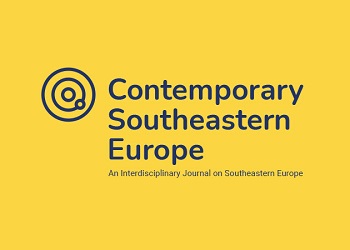Sex and Uncivil Disobedience: Girlhood and Social Class in Transitional Post-Yugoslav Cinema
Sex and Uncivil Disobedience: Girlhood and Social Class in Transitional Post-Yugoslav Cinema
Author(s): Dijana JelačaSubject(s): Gender Studies, Post-Communist Transformation, Film / Cinema / Cinematography
Published by: Universität Graz
Keywords: girlhood;post-Socialism;social class;gender;precarity;
Summary/Abstract: In recent post-Yugoslav cinema, trope of troubled youth in films as diverse as Skinning (Stevan Filipović, 2010, Serbia), Children of Sarajevo(Aida Begić, 2012, Bosnia-Herzegovina), Spots (Aldo Tardozzi, 2011,Croatia) and Quit Staring at My Plate (Hana Jušić, 2017) allows for an inspection of the links between youth rebellion, post-conflict trauma and social class. These cinematic depictions of youth-in-crisis, which I refer to as transitional films, offer insights into locally produced ethno-national identities as challenged by the proliferating transnational networks of connectivity. In this essay, I highlight one provocative example of transitional film – Clip (Maja Miloš, 2012, Serbia). I argue that the film's provocative approach to representing girls offers insightful commentary on the performative aspects of social class in transitional post-Socialist democracies of former Yugoslavia. Moreover, I examine how the film's graphic scenes of sex might point to what Berlant & Edelman call "sex without optimism" (2013), a term that focuses on “the ways in which sex undoes the subject” (4). In Clip, sex without optimism stages an encounter that destabilizes traditional identity structures rather than reintroducing feminine libido into the patriarchal regimes of control.
Journal: Contemporary Southeastern Europe
- Issue Year: 4/2017
- Issue No: 2
- Page Range: 121-140
- Page Count: 20
- Language: English

